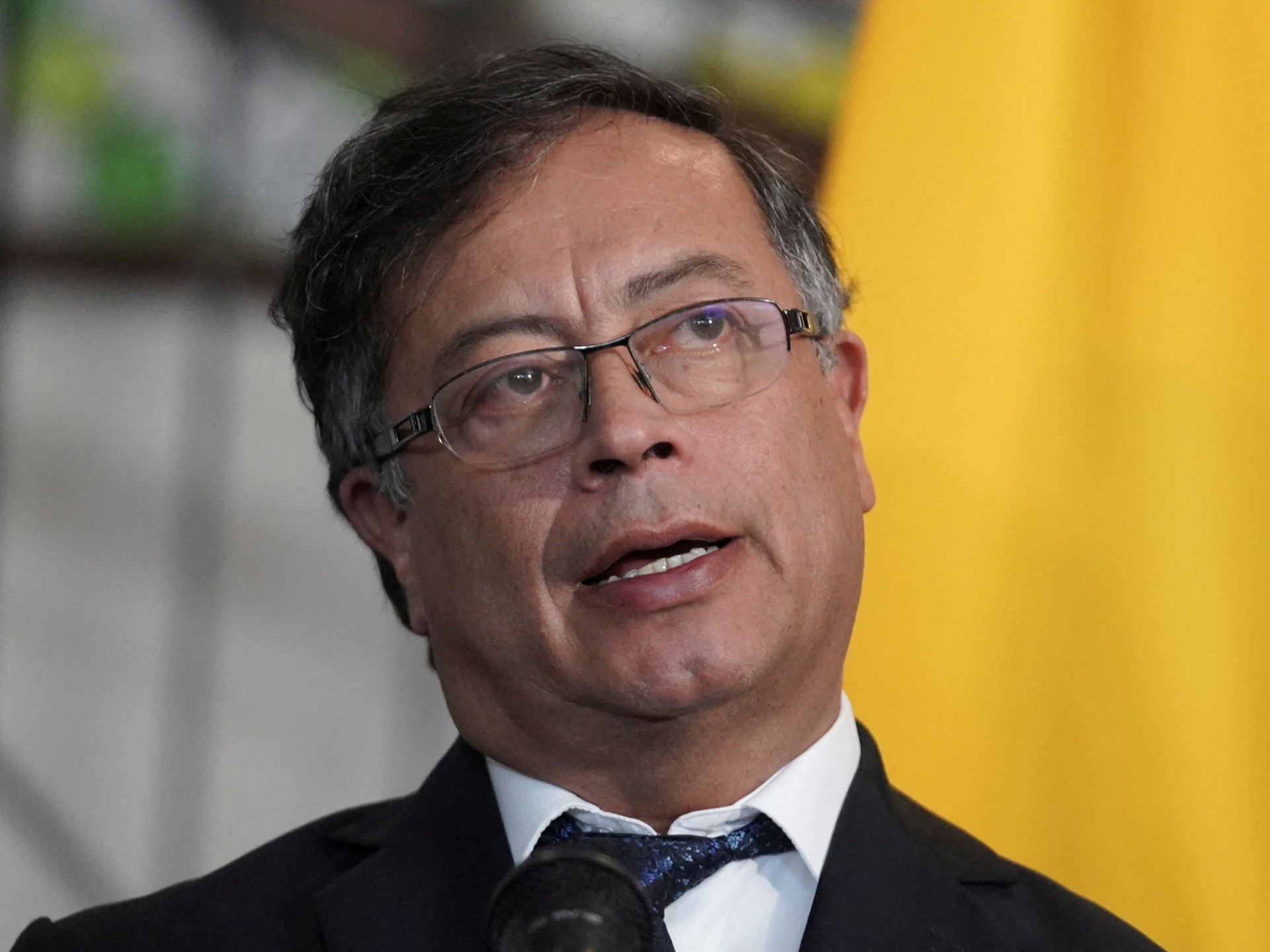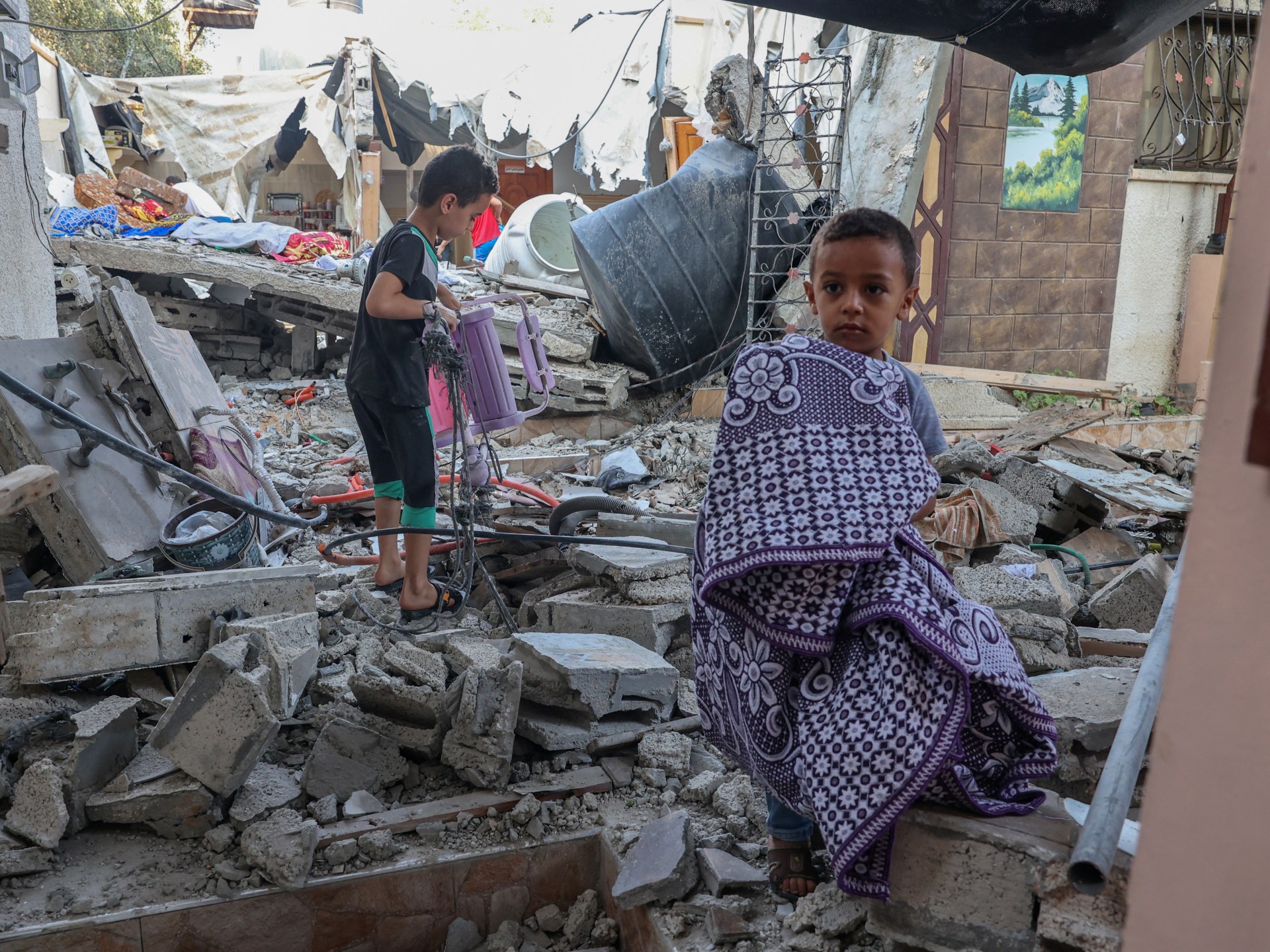Colombia, ELN rebels conclude first round of ‘successful’ talks | Conflict News
While no ceasefire reached, two sides agree to provide ’emergency care’ in violence-hit regions starting next month.
The Colombian government has concluded a first round of peace talks with the National Liberation Army (ELN) rebel group, part of an effort to end six decades of armed violence that has roiled the South American nation.
In a joint statement on Monday, representatives for Bogota and the ELN said that the discussions – held in the Venezuelan capital, Caracas – “ended successfully” and served as “a beacon of hope in a world mired in … war and destructive tension”.
While a ceasefire has yet to be reached, the two sides vowed to “implement a partial agreement for emergency care” to begin in January in several areas worst hit by violence.
Mexico will hold the next round of talks starting next month, the Mexican ambassador in Caracas, Leopoldo de Gyves, said on Monday after the country agreed to be an official guarantor for the peace talks.
Since taking office in August, Colombia’s left-wing President Gustavo Petro has vowed to negotiate with armed groups to try to bring an end to the armed conflict that has killed more than 450,000 people.
Petro’s approach is a departure from the more aggressive and militarised tactics of his right-wing predecessor Ivan Duque, who broke off negotiations with the ELN in 2019 after a car bombing killed 22 police cadets.
Colombia’s Defence Minister Ivan Velasquez said on Monday that there had been a “noticeable drop in operations” by the ELN – the country’s largest remaining armed group – since the peace talks resumed in November.
In the joint statement, the negotiating parties said they had reached four points of agreement so far, including acknowledging the serious violence and the need for emergency attention in the Colombian provinces of Choco and Valle del Cauca, without giving further details.
The statement also noted that the ELN has released 20 hostages since August, but Pablo Beltran, head of the group’s delegation, did not mention how many people were still being held.
Earlier this month, Petro also announced an agreement with the ELN that would allow displaced Indigenous people to return to their homes in the west of the country.
Petro, a former rebel himself and Colombia’s first left-wing president, has said that he will pursue “total peace” and move away from the hardline, militarised strategy that human rights groups have said contributed to strife and violence in the country.
He also has sought to normalise relations with neighbouring Venezuela, seeking greater trade relations and enhanced collaboration on instability in border regions.
In June, Colombia’s Truth Commission released a final report on the civil conflict that was critical of the militaristic strategy adopted by Bogota and encouraged by the United States, which included collaboration between government forces and right-wing paramilitaries.
The report found that all sides committed human rights abuses but that right-wing paramilitary groups and the government were responsible for the majority of the killings.
The report also highlighted abuses by left-wing rebel groups such as the Revolutionary Armed Forces of Colombia (FARC) and the ELN, which used kidnappings and extortion to partly fund their operations.
In November, Colombia’s transitional justice tribunal recommended sentencing seven former FARC commanders to five to eight years in prison for kidnappings and similar crimes committed during the conflict.
Petro has stated that the revelations must be used to pursue a more open dialogue and cannot become a “space for vengeance”.





Pingback: Online medicatie kopen zonder recept bij het beste Benu apotheek alternatief in Amsterdam Rotterdam Utrecht Den Haag Eindhoven Groningen Tilburg Almere Breda Nijmegen Noord-Holland Zuid-Holland Noord-Brabant Limburg Zeeland Online medicatie kopen zonder r
Pingback: situs togel 4d
Pingback: เน็ต ais